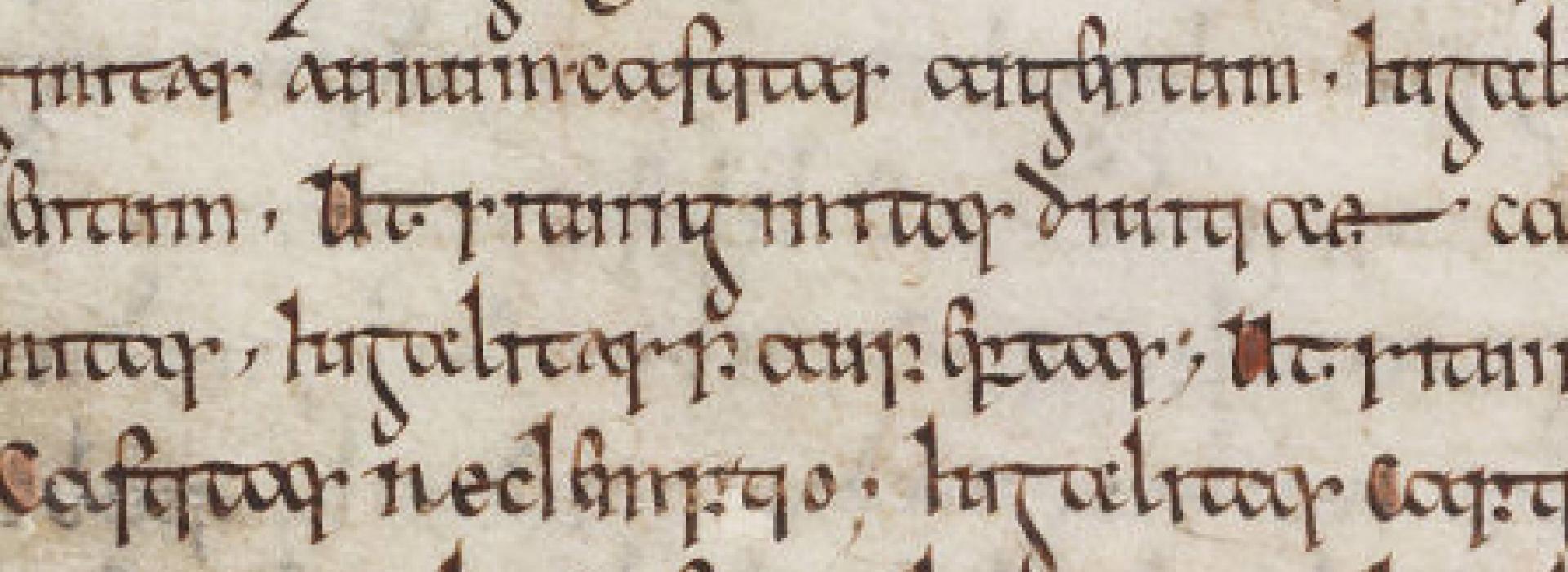Breadcrumb
ASNC provides a combination of subjects not available in any other university. The Tripos concentrates on the history, languages and literature of the British Isles and neighbouring regions in the early medieval period. Although it is possible to choose only historical options, or only language and literature ones, most find a mixture more satisfying, and take papers which complement each other (e.g. Old Norse and Scandinavian history, Old English and Anglo-Saxon history, and so on). There is also an option dealing with palaeography and editing of manuscripts.
Admissions Procedures
The subjects taught in ASNC are not found on most school curricula, so no previous knowledge is expected or required. Most undergraduates reading the Tripos have come from studying English, History, Classics or Modern Languages at school. A language (ancient or modern) at A-level or equivalent is highly desirable; in the case of applicants with no language A-level, some other evidence of linguistic ability will be looked for. We ask all our ASNC applicants to send us, about halfway through the autumn term in which they wish to be interviewed, two representative examples of recent work. Rather than being specially prepared for Cambridge, the essays submitted should have been set as part of normal sixth-form work, and they should be marked by a teacher accordingly.
Candidates should expect two interviews, one of which will be with an Admissions Tutor and the other with our Director of Studies in ASNC. The main aim is to ascertain candidates’ aptitude for the subject and their commitment to it. No specific preparation will be necessary, but candidates are recommended to have done some reading in the field: a suggested introductory reading list can be found on the Department of ASNC website.
We assess every candidate on the basis of their application form, referees’ reports, written work and interviews. We aim to give all applicants the best possible opportunity to demonstrate their ability and potential. The principal aim of the admissions process is to identify applicants who will thrive intellectually at Cambridge.
The College will complete its selection of successful applicants by early January. Offers are then made by letter, and are normally conditional upon candidates’ performance at A2 or equivalent. Our standard, minimum conditional offer is A*AA at A2. IB offers are usually for a minimum of 40-42 points, to include 7, 7, 6 or 7, 7, 7 at Higher level in relevant subjects. Offers are designed to be realistic, taking into account individual circumstances, and to reflect potential and likely levels of achievement. Most of those who receive offers will attain the grades required.
Although most applications will be made before applicants have completed their sixth-form studies, it may sometimes be appropriate for candidates to apply after they have left school. Much the same range of evidence will be used in assessing such applications as in the case of pre-A-level candidates, although extra breadth of knowledge and intellectual maturity will naturally be expected. Successful applicants of this sort normally receive unconditional offers in January.
If English is not your first language, it is essential that your English language skills are good enough for you to undertake an intensive and challenging academic course that is taught and examined in English. Therefore, you may be asked to achieve a formal qualification in English Language. If you are taking subjects that require extensive reading and writing in English as part of your school work and are generally being taught in English by native speakers, this condition may be met by your school exams. It is however likely that you will be asked to achieve an IELTS qualification as part of the conditions for your offer. In Anglo-Saxon, Norse and Celtic this is typically 8 or 8.5, with a score of at least 8 in written English.
Visits to the College and Contacts
All correspondence should be addressed to the Tutor for Admissions at the address below. Sixth-formers or Year 12s are encouraged to visit the College on one of our Open Days, when they can meet current undergraduates and an ASNC Fellow. It may be possible to arrange to meet either an Admissions Tutor or a member of teaching staff at times other than advertised Open Days. To arrange this or to ask any other questions, please do not hesitate to contact the Admissions Co-ordinator, as detailed below:
The Admissions Office, Peterhouse, Cambridge, CB2 1RD, United Kingdom.
Email: admissions@pet.cam.ac.uk
Telephone: 01223 338223/768877
Further information can be found on the University Undergraduate Admissions website, as well as the Department of ASNC website.
The Department of ASNC Open Day will take place on 25th June, 2014.

